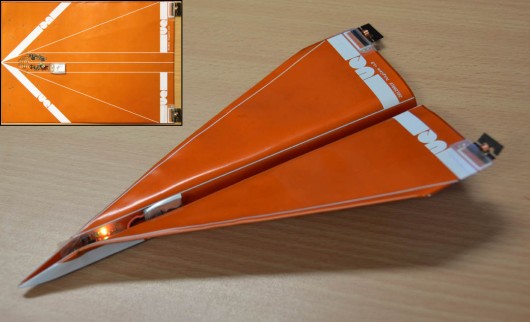Australia has more than just abundant natural predators, and what I would assume is very expensive life insurance: The robotics team at the University of Queensland has created prototypes of technology that will be disposable UAVs. What have they made, exactly? Well, these mini-drones are thus far essentially a paper plane and a maple seed.

The polyplane is the first prototype. It looks like a (much better designed than I ever managed) paper plane, made of cellulose. Except it is able to steer itself to a preset destination. There are even small elevon tabs on the back of each wing, as well as an onboard control system. The other, fairly awesome, upgrade involves printing circuit boards directly onto the paper it’s made from, using UV curing and microwave sintering.
Using paper for a UAV means that manufacturing is cheaper, and it’s already light and aerodynamic — paper planes can travel ridiculously long distances on nothing but air currents. Plus, it’s worth noting that the UAVs will be biodegradable.

The second prototype is called the Samara, with a design based on the maple seed, which is itself a pretty effective little helicopter. The circuit board on this design is traditional and rigid, attached to an antenna and flexible wing. While the Samara’s flight is less controllable, its floating descent can protect electronics without needing a parachute or separate landing system.
The U.S. is also looking at single-use aerial cameras and other sensors for war zones, but these nonmilitary examples are pretty cool. If you want to learn more, you can check out the conference paper.
(via Gizmag, images via QinetiQ Group, University of Queensland)
- 45-foot paper airplane flies over desert
- NASA flies decommissioned drones over active volcano because sure, why not?
- College professor hacks UAV guidance system with under $1000 worth of equipment








Published: Jul 18, 2013 03:00 pm